At first glance, some insects look like harmless, even cute, creatures you wouldn’t mind having around. But don’t let their cuddly appearances fool you—many of these tiny charmers come with lethal defenses that can be dangerous to predators and humans alike. From venomous stingers to toxic sprays, these insects are proof that looks can be deceiving. Here are 14 adorable-looking insects with defenses that pack a serious punch.
1. Bombardier Beetle
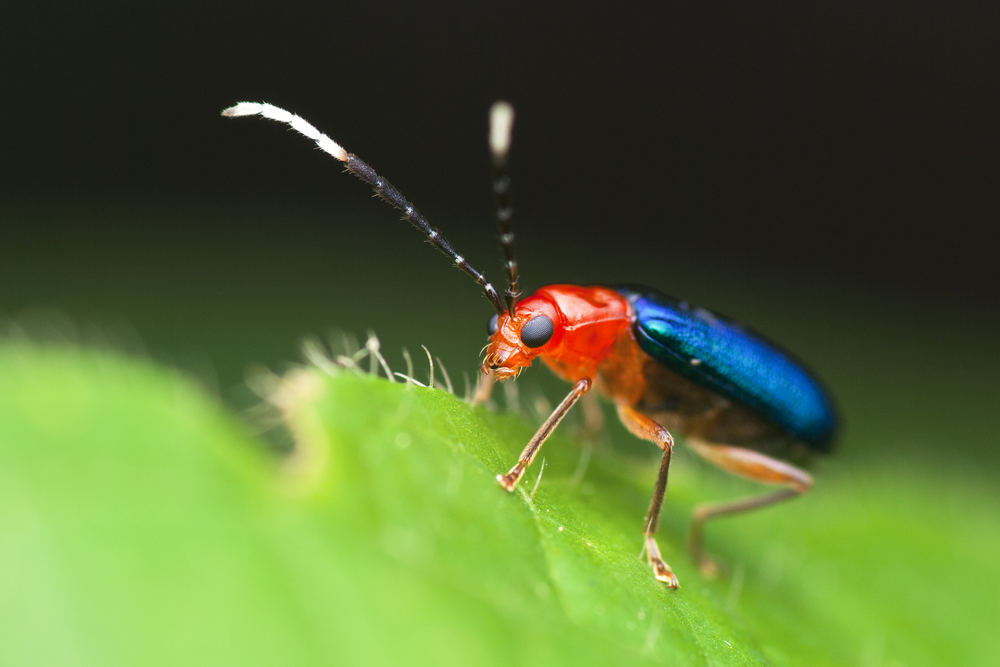
With its glossy body and unassuming appearance, the bombardier beetle might seem like just another garden dweller. But when threatened, this insect unleashes a scalding chemical spray from its abdomen, capable of burning predators and surprising even curious humans. The beetle’s precision aim and ability to produce boiling chemicals on demand make it one of nature’s most impressive, albeit deadly, defenders.
2. Velvet Ant (Cow Killer)
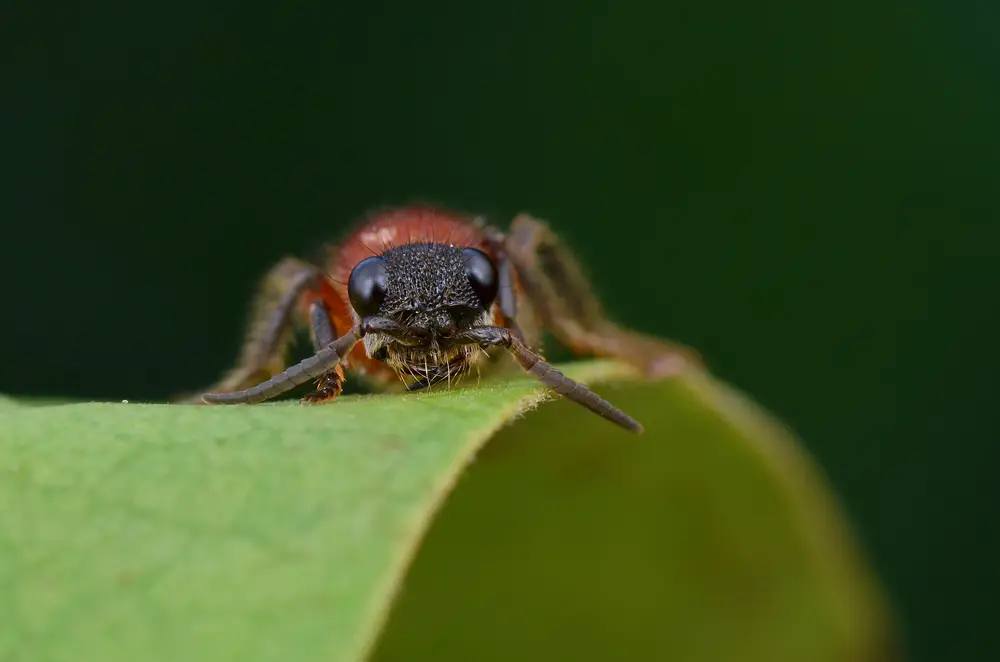
Covered in bright red or orange fuzz, the velvet ant looks more like a plush toy than a wasp. But don’t be fooled—it delivers one of the most painful stings in the insect world, earning it the nickname “cow killer.” Though it’s not actually lethal to humans, its sting is enough to send even the toughest predator running, making its fuzzy exterior a deceptive façade for its dangerous potential.
3. Assassin Bug
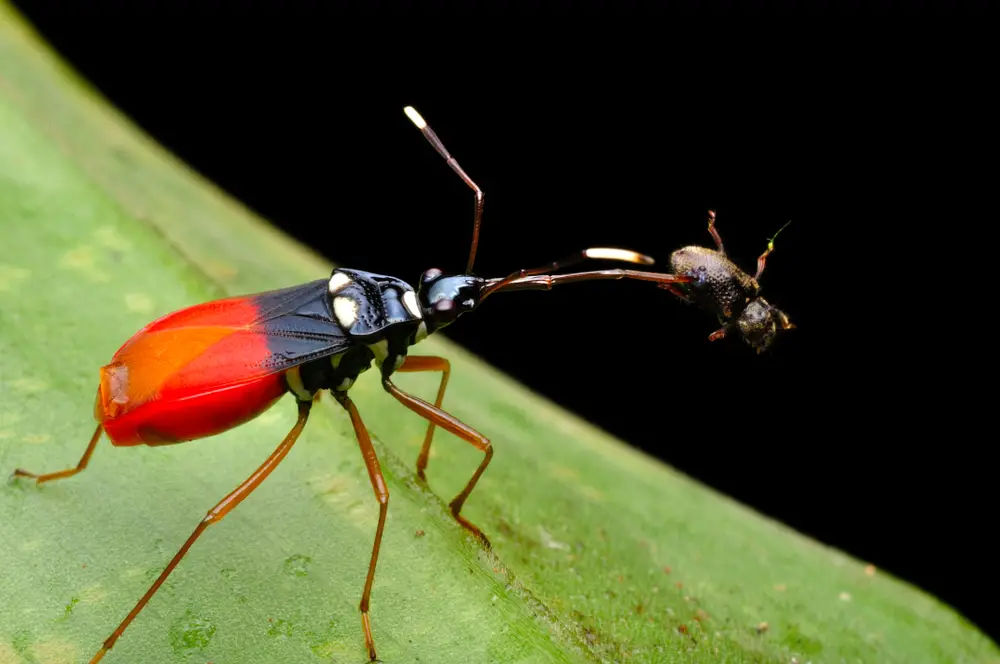
With its long legs and vibrant patterns, the assassin bug might seem elegant, even delicate. But this insect lives up to its name by injecting venomous saliva into its prey, liquefying their insides for easy consumption. Some species also carry Chagas disease, making them a threat to humans in certain regions. Beneath its dapper exterior lies an insect with a shockingly lethal bite.
4. Flower Mantis
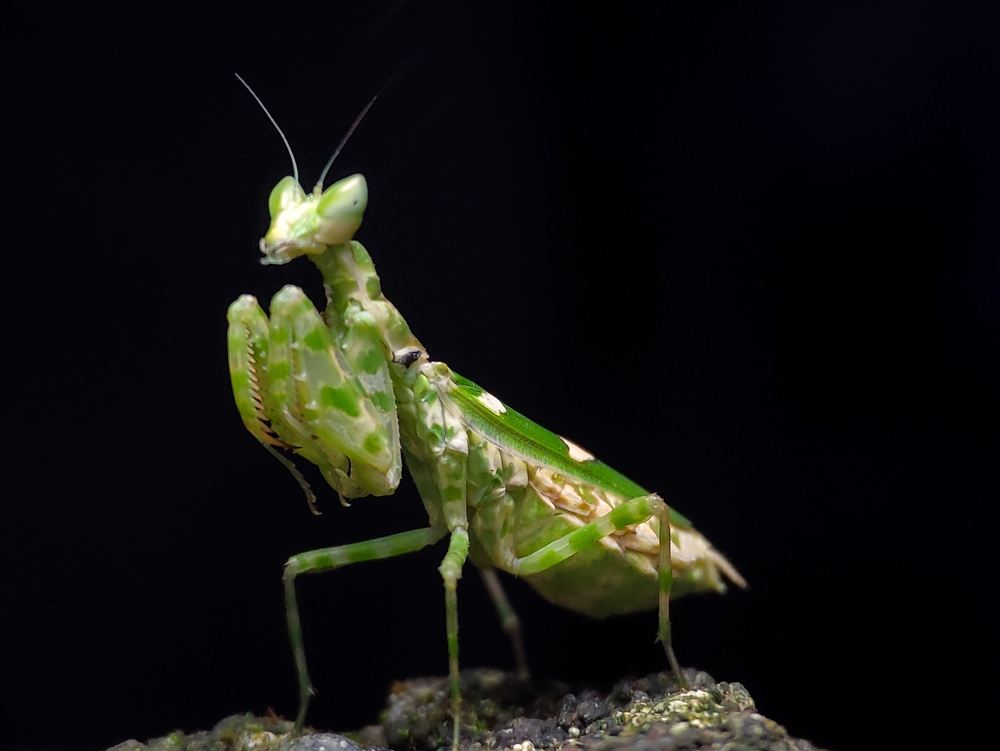
The flower mantis is a master of disguise, resembling an innocent orchid or flower petal. But its charming looks conceal its predatory nature. It lures unsuspecting insects close, then strikes with lightning speed to devour them. While not dangerous to humans, its combination of deceptive beauty and ruthless hunting tactics makes it a tiny terror in the insect world.
5. Giant Silkworm Moth Caterpillar
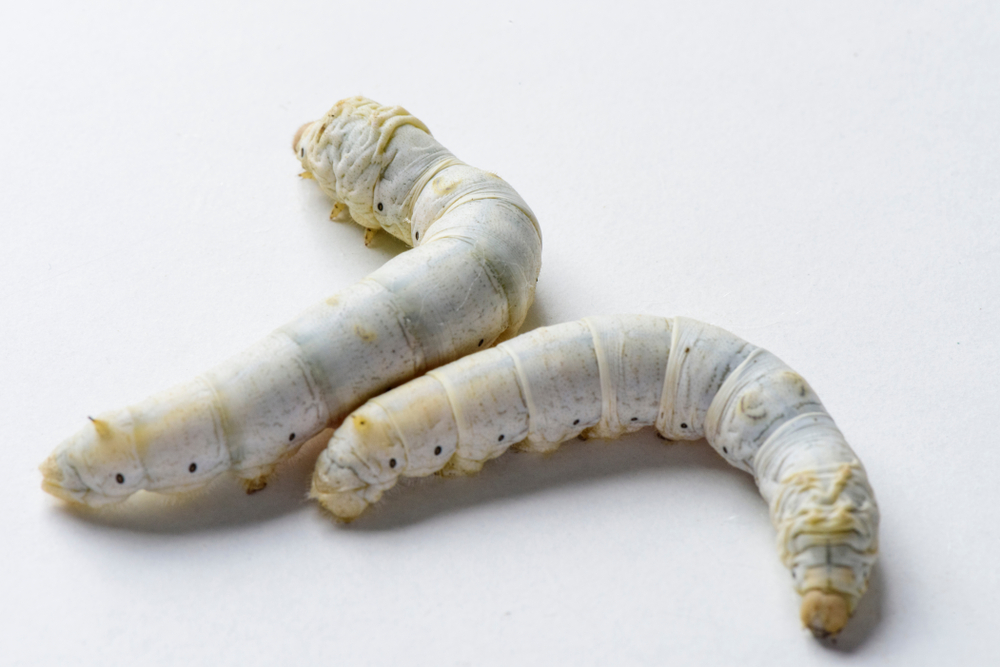
This caterpillar might look like an adorable, spiky green worm, but it’s one of the most venomous caterpillars in the world. Native to South America, its spines deliver a potent venom that can cause intense pain, bleeding, and in rare cases, death. The contrast between its harmless appearance and deadly defenses serves as a stark reminder that cuteness can be deceptive.
6. Leafhopper
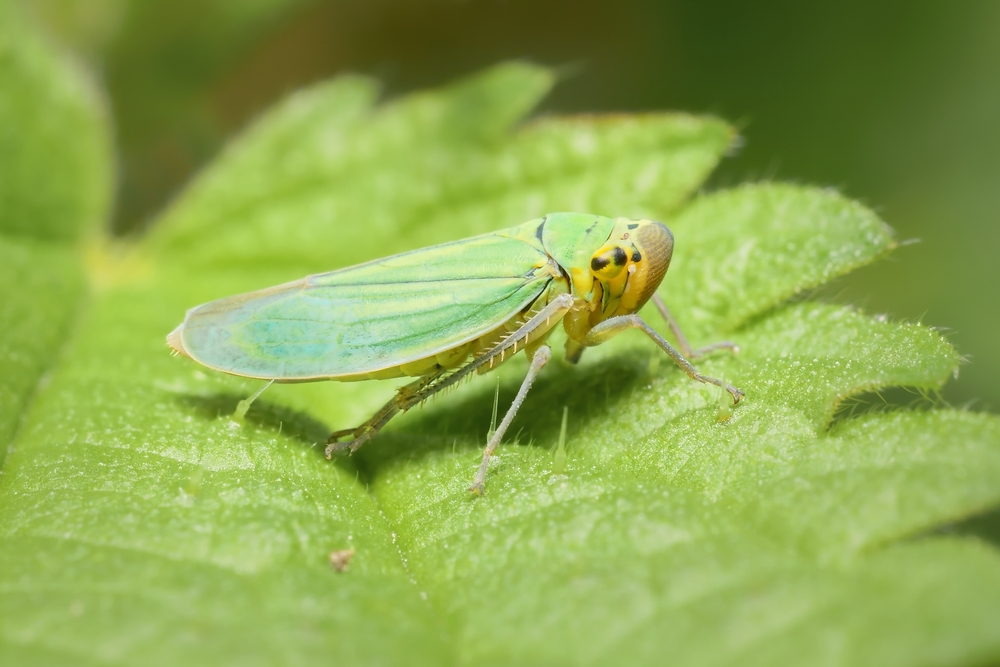
Leafhoppers are tiny, colorful insects with intricate patterns that make them look like living jewels. But some species secrete a toxin-laden froth to deter predators. While they don’t pose a direct threat to humans, their ability to poison small animals and their role in spreading plant diseases make them far more dangerous than they seem.
7. Caterpillar of the Puss Moth
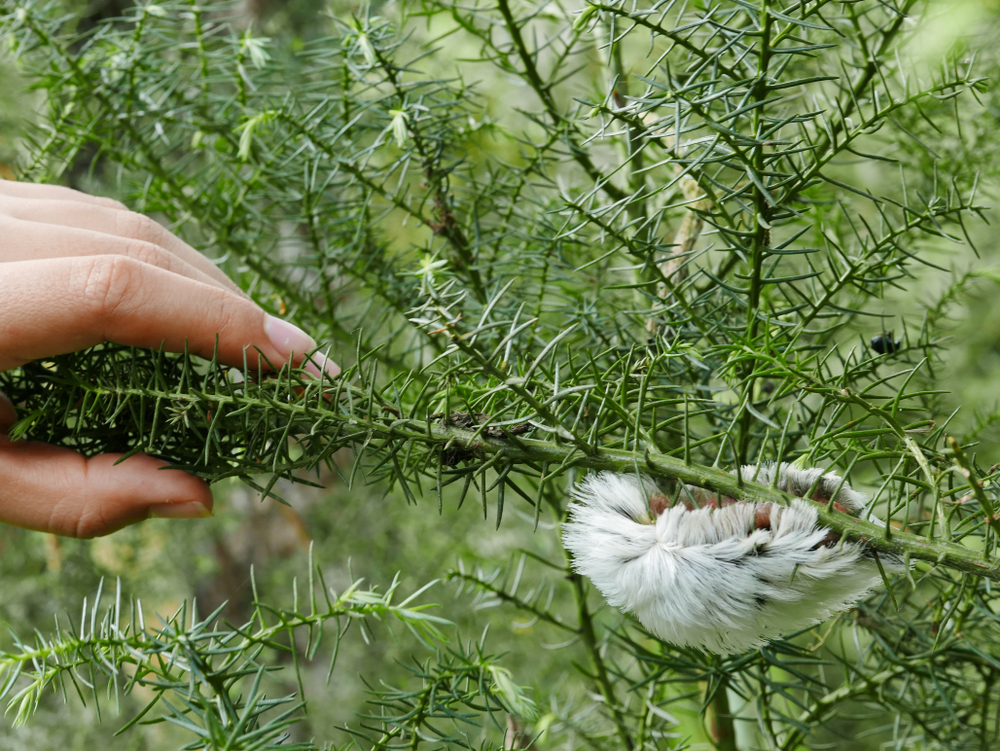
Looking like a cartoon character come to life, the puss moth caterpillar’s soft, fuzzy exterior hides venomous spines that can cause burning pain and swelling. Found in the Americas, this little charmer is best admired from afar. Its seemingly innocent fluff is its most deceptive trait, as its sting is anything but gentle.
8. Peacock Spider
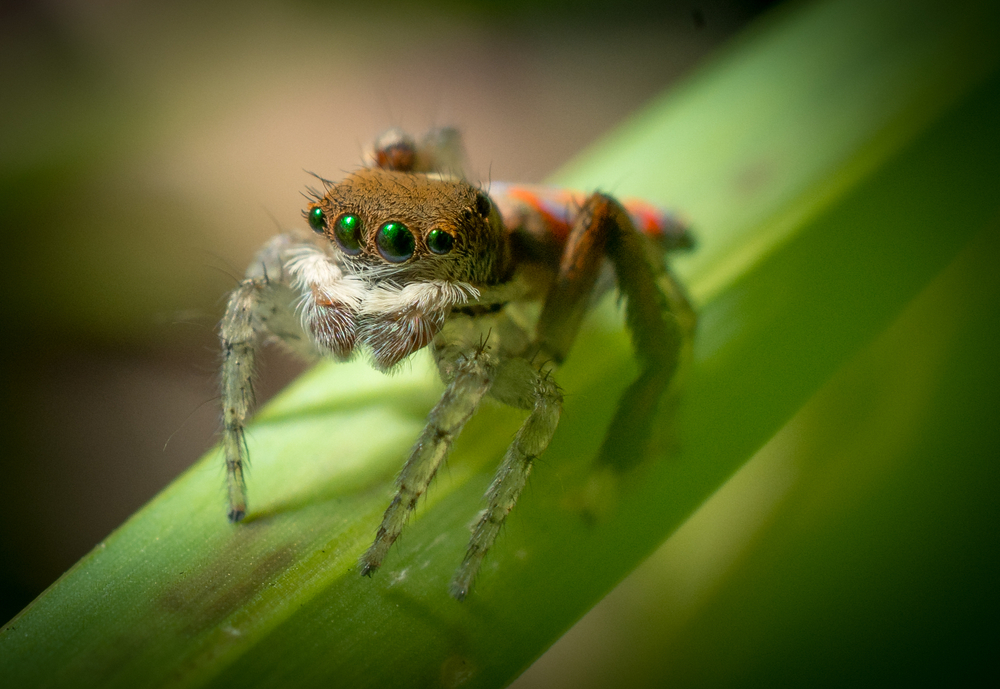
Peacock spiders are known for their vivid colors and quirky courtship dances, which have earned them internet fame. While they’re not venomous to humans, their vibrant appearance and diminutive size can trick predators into thinking they’re harmless. In reality, these spiders are formidable hunters, capable of taking down prey with precision and speed.
9. Blister Beetle
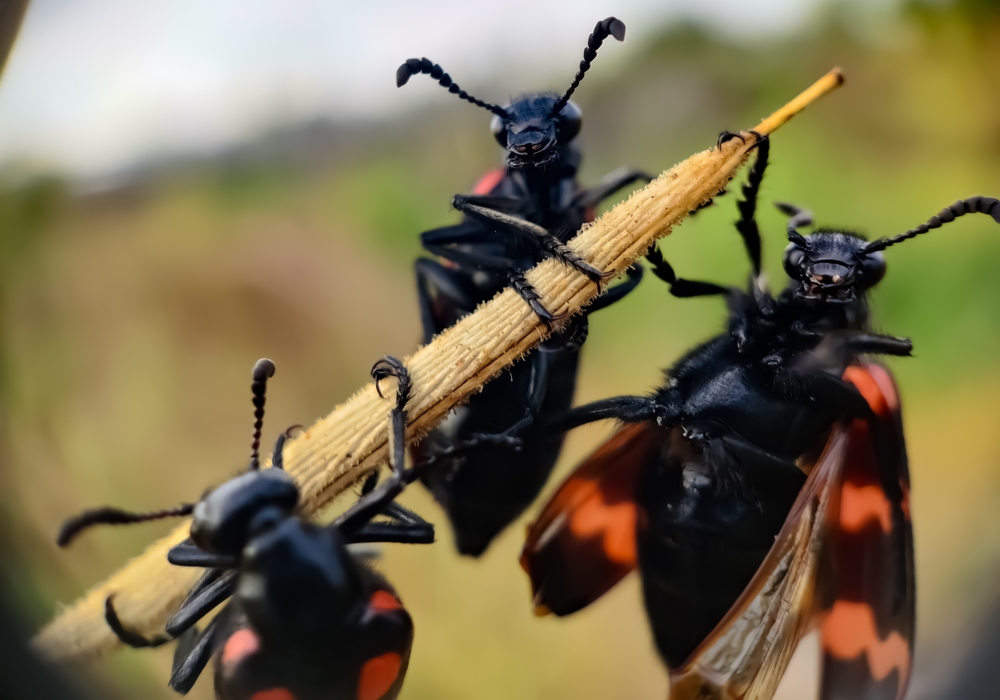
Blister beetles, with their shiny, metallic exteriors, look almost like jewelry crawling across a leaf. But they produce a chemical called cantharidin, which can cause painful blisters on the skin and, in high doses, can be fatal if ingested. Their beauty is a warning—these beetles are not to be messed with.
10. Tussock Moth Caterpillar
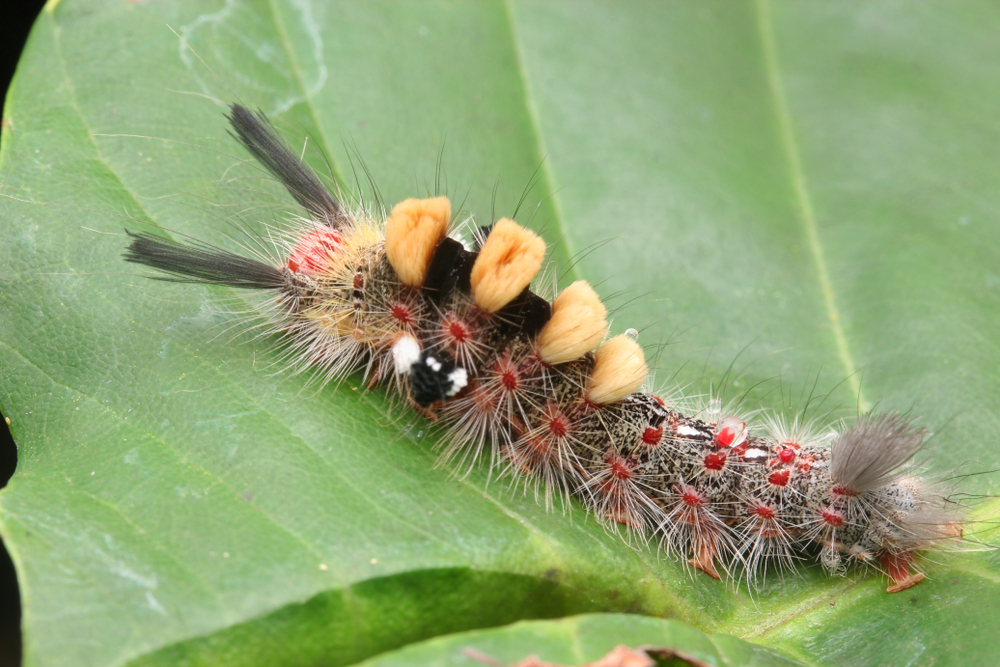
The tussock moth caterpillar looks like a tiny, furry parade float with its tufts of colorful bristles. However, many species have venomous hairs that can cause rashes, itching, and irritation. Found worldwide, these caterpillars rely on their striking looks and painful defenses to deter would-be predators, proving that fluff doesn’t always mean friendly.
11. Bullet Ant
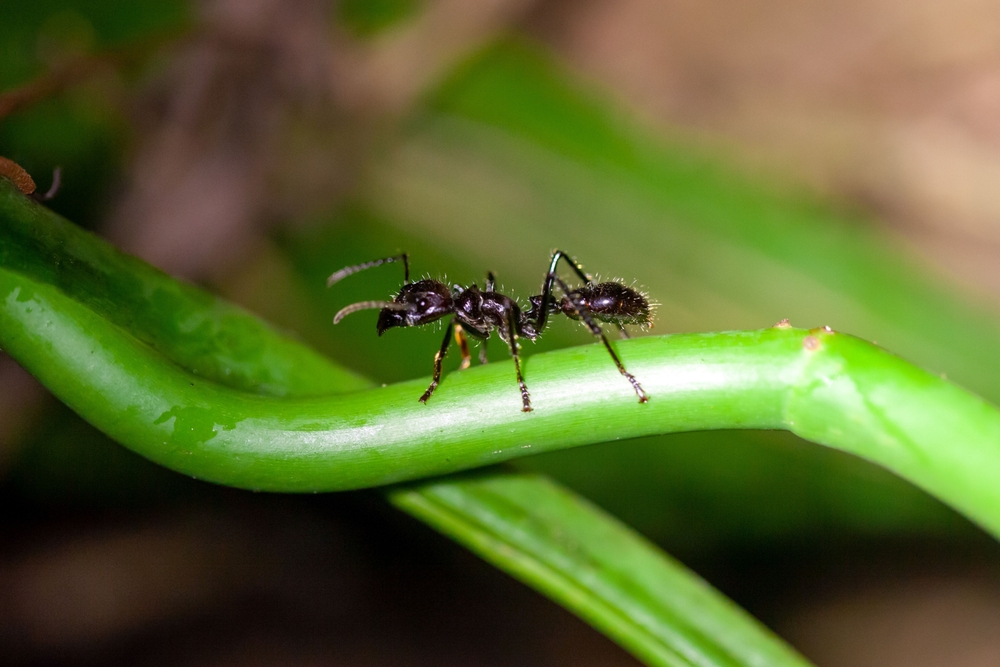
The bullet ant doesn’t look particularly menacing, with its smooth body and straightforward black coloring. But it delivers a sting so painful it’s often described as feeling like a gunshot wound. Found in South America, this ant is notorious for its venom, which causes hours of intense, burning pain. It may not look dangerous, but few creatures match its defensive power.
12. Glasswing Butterfly Caterpillar
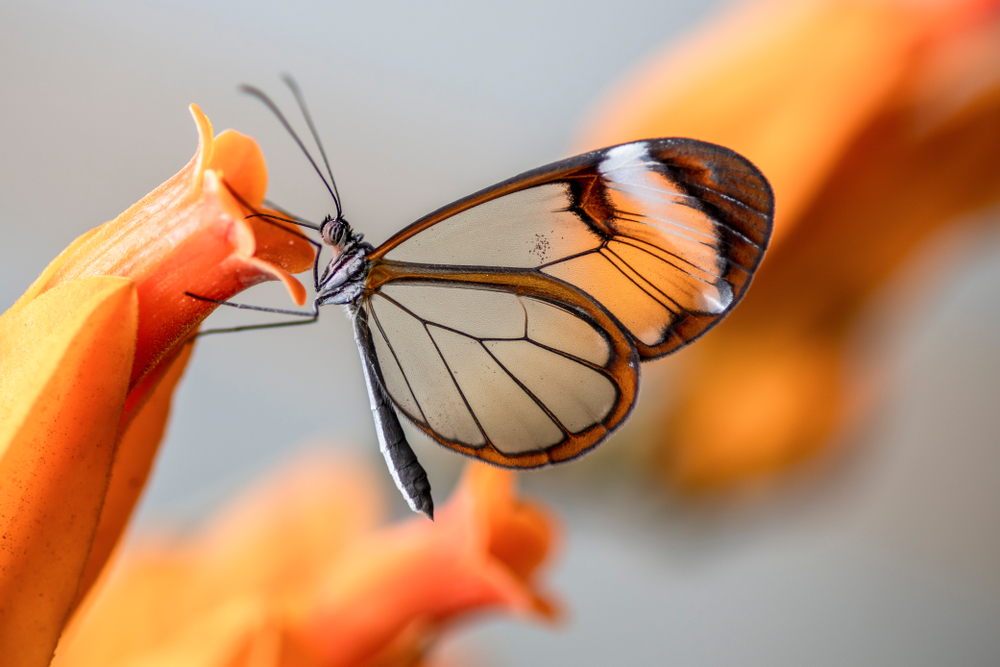
The glasswing butterfly caterpillar is a translucent wonder, with its delicate, jelly-like appearance making it look almost magical. But its body contains toxic chemicals absorbed from the plants it eats. Predators that take a bite are in for a nasty surprise, as the toxins can cause serious harm. This little insect’s ethereal appearance is a clever disguise for its lethal defenses.
13. Saddleback Caterpillar
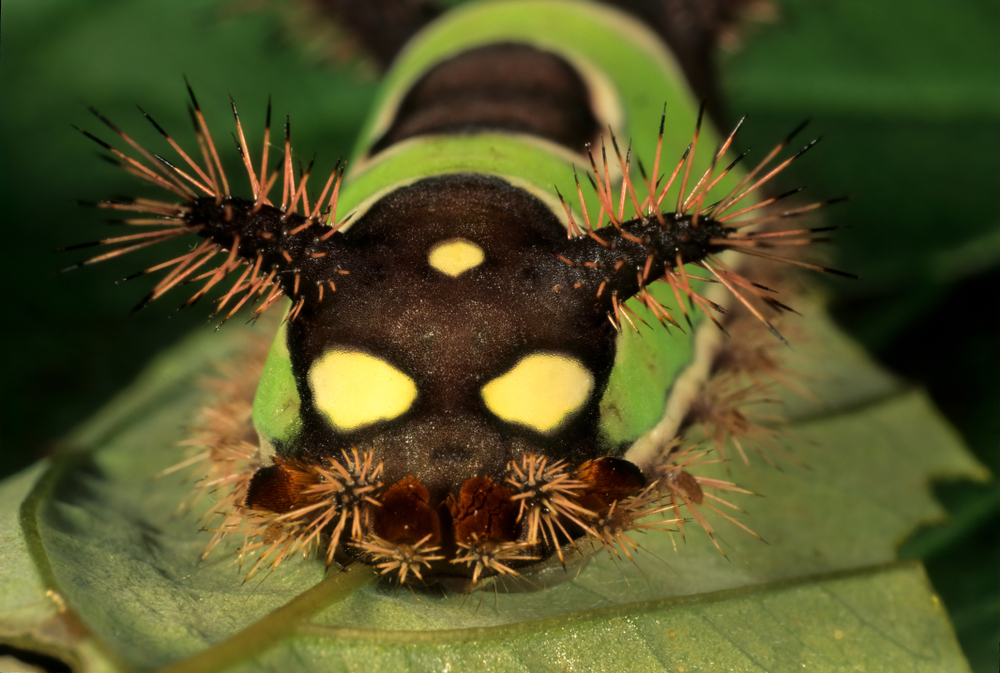
With its bright green body and eye-catching saddle-shaped marking, the saddleback caterpillar looks more like a cartoon character than a threat. However, its spines deliver a venomous sting that can cause severe pain, nausea, and even systemic reactions in humans. This North American caterpillar’s defense mechanism is a sharp contrast to its cheerful appearance.
14. Ladybird Spider
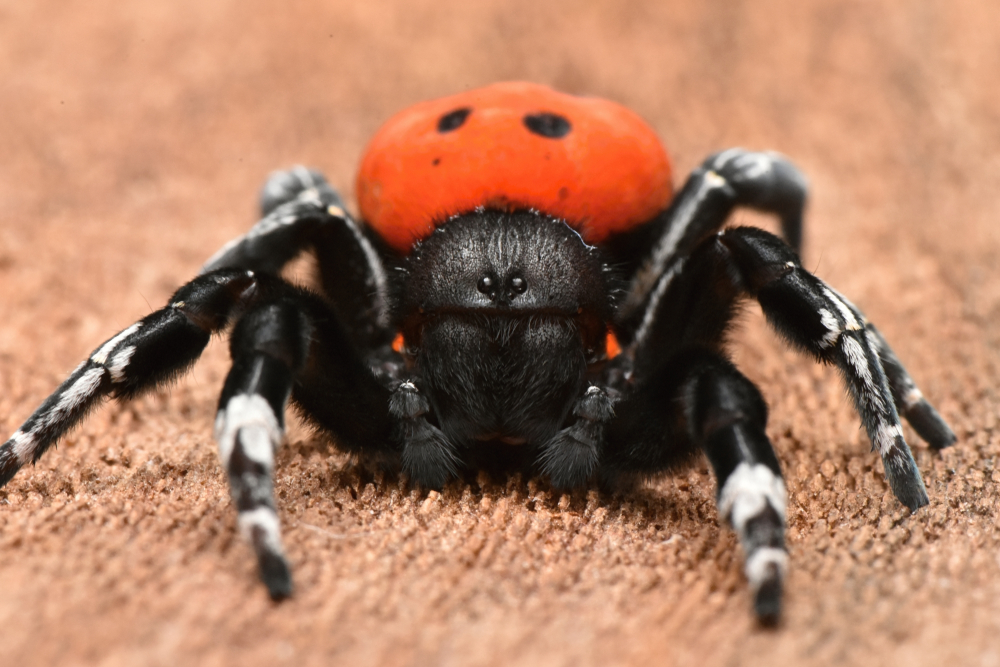
This spider’s black-and-red polka-dotted body makes it look like a ladybug, earning it its charming name. But despite its cute appearance, the ladybird spider is an efficient predator, using its venom to subdue insects. While harmless to humans, its deceptive coloring and lethal hunting skills make it a striking example of nature’s clever designs.
